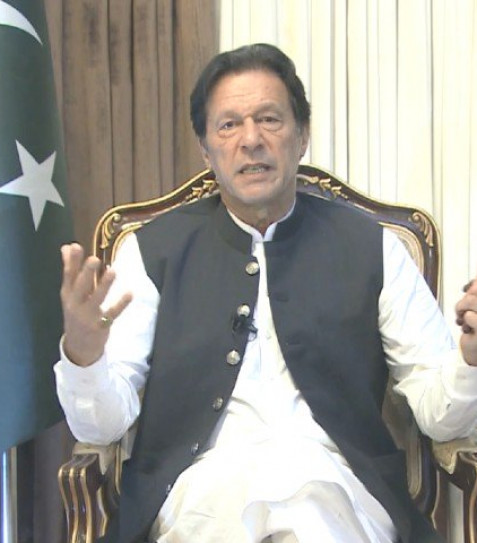of recent unprecedented heavy rains leaving the infrastructure of the metropolis in tatters and its civic agencies struggling to mitigate the woes of its residents.
Around Rs572 billion would be spent on the city’s mass transit system and rail and road transport systems.
The second major chunk -- Rs267 billion – has been allocated for solid waste management, clearing stormwater drains, and the resettlement of people living in encroachments built on the city’s waterways.
Besides the lack of a proper sewerage and drainage system, one the main reasons the heavy downpour triggered urban flooding in Karachi was garbage and sludge choking the city’s nullahs, which have already shrunken because of informal settlements along their banks.
A sum of Rs141 billion would be spent on the city’s sewage treatment plants, Rs92 billion on water supply projects and Rs41 billion on roads.
After arriving in Karachi earlier in the day, the premier met Sindh Governor Imran Ismail and Chief Minister Murad Ali Shah and chaired a meeting of the Karachi committee, which comprises members from the three main political parties in the city -- the PTI, PPP and MQM-P.
Addressing the media flanked by the Sindh governor and the chief minister, the premier said the federal and provincial governments had decided to deal with the issues of the metropolis “together”.
“All of issues of Karachi, including water supply, drainage, sewage, public transport and solid waste disposal, would be addressed at once,” he added.
“I would have visited [Karachi] sooner but we had to prepare a structure [of the Karachi Transformation Plan].”
The premier said the city’s transformation plan would be executed by the Provincial Coordination Implementation Committee (PCIC) chaired by the chief minister.
“All stakeholders will be involved in its implementation and the army would play a big role,” he added, noting that the armed forces had helped the civilian administration whenever there was a calamity.
“We are trying to address the issues. I assure the citizens of Karachi that their water issue will be resolved in the coming three years.”
The prime minister pointed out that there were encroachments on the city’s drains which had created a catastrophic situation during recent rains.
“We will initiate a drive to demolish illegal structures on nullahs. The homeless people will be compensated by the provincial government.”
The prime minister said the plan would also focus on Karachi’s sewerage and solid waste disposal system.
In reference to the dismal state of public transport in the city, the premier assured the residents of the metropolis that the Karachi Circular Railway (KCR) would be completed and work would also started on roads and the bus rapid transit system.
“We have decided to completely solve the issue of transportation and roads.”
After addressing the media, Imran met a delegation of the city's businessmen.
While presiding over the meeting of the Karachi committee, the prime minister reaffirmed the Centre’s commitment to assist the provincial government in completing the city’s projects.
The KCR and the Greater Karachi Sewerage Project (SS-III) were discussed at length.
Under the Karachi Transformation Plan, six projects of mass transit system worth Rs447.43 billion would be announced. Moreover, the KCR -- worth Rs300 billion -- has been included as one of the projects under the mass transit systems.
China would provide Rs250 billion and the Sindh government would add Rs50 billion to the mega project.
Among the uplift projects are eight sewerage projects estimated at Rs162.60 billion, four solid waste management projects amounting to Rs14.86 billion, two water drainage projects costing around Rs4.70 billion, and various road construction and repair projects costing an estimated Rs62.30 billion respectively.
































